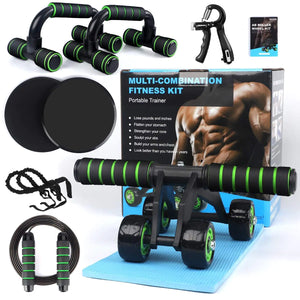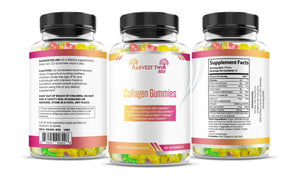
Walk down any grocery aisle or scroll through your social feed, and it's easy to believe that protein is the magical solution for a leaner, stronger body.
From protein-fortified snacks to endless fitness influencers touting its benefits, the message is loud and clear: you should be eating more protein. But while protein is essential, the idea that nearly everyone needs to ramp up their intake doesn’t hold up under scientific scrutiny.
The staff at Nifty Cool Stuff – our online lifestyle store – took a hard look at what their research indicates.
For most people, daily protein needs are actually quite manageable.
The standard recommendation for sedentary individuals is around 0.8 grams of protein per kilogram of body weight. That means someone weighing 150 pounds (about 68 kilograms) only needs roughly 55 grams of protein each day, something easily achieved through regular meals that include foods like poultry, fish, dairy, beans, and nuts.

However, physical activity changes the equation. People who exercise regularly – especially those doing resistance training or endurance sports – have higher protein requirements to support muscle repair and recovery. In these cases, recommendations rise to around 1.2 to 1.6 grams per kilogram of body weight.
That same 150-pound person might then benefit from 80 to 110 grams of protein per day.
For athletes undergoing intense training, protein needs can climb even higher, reaching up to about 2.2 grams per kilogram of body weight daily. At this level, the goal isn’t just to meet basic needs, but to optimize muscle maintenance and growth under heavy physical strain.

That said, your body can only absorb and use a limited amount of protein at one time. Research suggests that around 0.4 to 0.5 grams per kilogram per meal is the upper threshold for maximizing muscle protein synthesis. Eating more than that in a single sitting won’t boost results; it just means the excess protein is either stored as fat or eliminated.
Despite fears circulating online, higher protein intake isn’t harmful to healthy kidneys.
Concerns about kidney damage have been largely debunked for people without pre-existing conditions.

What is true, though, is that excess protein can be inefficient, especially when it's consumed in the form of expensive supplements or protein-laden products.
Much of that extra protein is simply broken down and excreted, offering no added benefit.
In reality, most people in Western countries are already eating close to, or even above, the optimal protein range, especially those who include meat, dairy, or eggs in their diets.

Even among vegetarians and vegans, meeting protein needs is entirely possible with a bit of planning.
Combining various plant sources like legumes, grains, seeds, and soy ensures a complete amino acid profile. A bowl of rice and beans or a tofu stir-fry can be just as effective as a chicken breast when it comes to nutrition.
Supplements like protein powders can be convenient, particularly for athletes with busy schedules, but they’re not essential. Whole foods like eggs, yogurt, cheese, and nuts offer the same benefits with added nutrients and fiber.

Popular ingredients like whey protein have gained traction largely due to marketing, but many whole food options offer comparable levels of the key amino acids needed for muscle repair.
While protein won’t melt body fat on its own – despite claims to the contrary – it does have a few weight management advantages. It’s more filling than carbs or fat and takes longer to digest, helping to curb hunger and stabilize energy levels.
Additionally, during calorie restriction, maintaining a higher protein intake helps preserve lean muscle mass while fat is lost, which is crucial for long-term health and strength.

Spacing protein throughout the day may also make a difference. Instead of loading up at dinner, including moderate amounts at breakfast, lunch, and snacks can support muscle repair and appetite regulation more effectively.
Some evidence even supports having a small protein-rich snack before bed to promote overnight muscle protein synthesis. Something as simple as a cup of Greek yogurt or a handful of almonds can do the trick.

In summary, while protein is undoubtedly important for health, strength, and fitness, most people don’t need to chase down more of it. The real key lies in adjusting intake to match activity levels, spreading it out through the day, and focusing on whole foods rather than trendy products.
Where Nifty Cool Stuff can help is by carrying quality products that can make preparing for your reasonable protein intake a simple and efficient process. We invite you to give us a click and view our inventory. We believe it’ll be odds-on you’ll find an item or two that can make a difference in assisting your quest to lead a better life.


















































